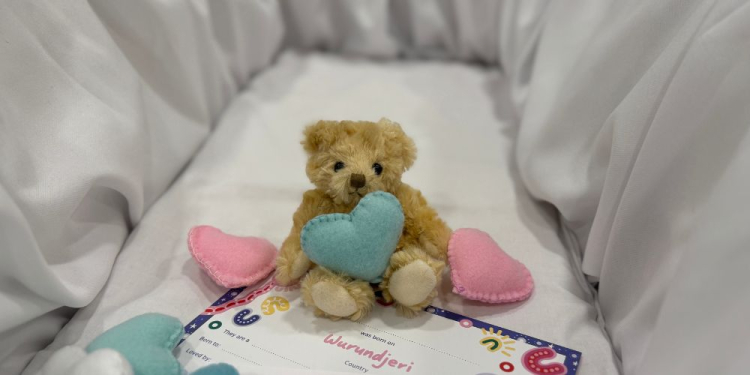
The Women’s welcomes Australia’s first national guidelines on early pregnancy loss. This is a key step in seeing miscarriage as a profound personal loss, not just a medical issue.
The Royal Australian and New Zealand College of Obstetricians and Gynaecologists (RANZCOG) created these guidelines. They aim to standardise care for miscarriage, recurrent pregnancy loss, and ectopic pregnancy up to 14 weeks.
At their heart is a clear message: recognition of loss, at any gestation, matters.
At the Women’s, this message is already embedded in practice.
Patients get clinical care, counselling, and follow-up support through the Women's Early Pregnancy Assessment Service (EPAS). There is growing space for grief and a commitment to acknowledging it.
 Nina Grillo is the Women’s Perinatal Bereavement Coordinator. She says that gestation doesn’t equal attachment.
Nina Grillo is the Women’s Perinatal Bereavement Coordinator. She says that gestation doesn’t equal attachment.
“Whether it’s six weeks or sixteen, there often are love, expectation, hopes and dreams. What matters is what this pregnancy meant to that person,” says Nina.
Language is central to the shift. For decades, medical terms like "chemical pregnancy" or “spontaneous abortion” have dominated clinical conversations, often leaving women and their partners feeling dismissed.
The new guidelines ask healthcare professionals to use sensitive, accurate language that reflects emotional reality.
Nina sees the impact of words daily.
“When someone’s told it was ‘just cells’ or ‘too early to matter,’ that’s not just clinically reductive; it’s emotionally wounding. Language should affirm, not alienate.”
At the Women’s, staff are trained to speak with care.
Patients are offered keepsakes such as ultrasound images and mementoes. They are also invited to take part in the hospital’s annual memorial service. These gestures, once rare in early pregnancy loss, are now seen as important acknowledgements.
The guidelines also redefine recurrent miscarriage, recommending care and investigation after two losses instead of three. This change is clinically important, but it also sends a bigger message: every loss matters, and getting support early is crucial.
Yet stigma persists. Miscarriage stays shrouded in silence. People often respond with minimising comments or hurried advice to “try again.”” For many, this is dismissive and adds isolation to grief.
“What families need is space to grieve and to have their experience heard and respected,” Nina says.
“You don’t need to fix it. There is no magic, you just need to say, ‘I’m sorry,’ and really mean it.”
Access the full RANZCOG Guidelines here: C-Gyn 38 Miscarriage, Recurrent Miscarriage and Ectopic Pregnancy Clinical Guideline [pdf|2.8MB]